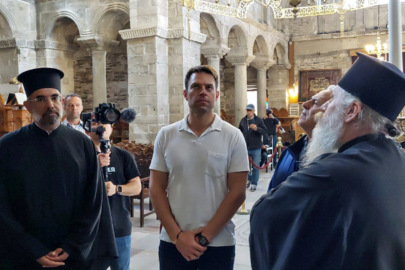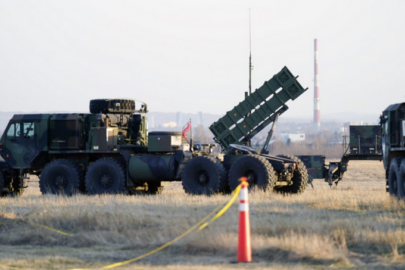Following a meeting between government Vice-President and Foreign Minister Evangelos Venizelos and Cypriot Foreign Minister Ioannis Kasoulides on Monday, Greece and the Republic of Cyprus signed a bilateral cooperation agreement on search and rescue missions in the seas between the two countries.
The meeting between the two men took place in Athens and, as they both underlined in a statement after the signing of the agreement, this is a very important development as it places under the jurisdiction of the two countries and of the international law, the maritime area between Greece and Cyprus – along the lines of the existing agreement regarding the airspace between Nicosia and Athens FIR – to conduct search and rescue operations.
Following his meeting with his Cypriot counterpart, Mr. Venizelos stressed Athens’ support for Nicosia’s efforts to arrive at a solution of the Cyprus issue and underlined that his talks with Kasoulides focused on the latest developments concerning Turkish violations of Cyprus’ EEZ.
As part of the Greek Foreign Ministry’s efforts to promote closer cooperation between Athens and Nicosia, Venizelos announced a number of actions focusing on maritime policy and energy issues, including the signing of bilateral cooperation agreement on search and rescue missions.
Mr. Venizelos referred to the progress made in the Egypt-Cyprus-Greece trilateral cooperation and to the recent meeting in New York, and announced that the next meeting of the three foreign ministers will be held in Nicosia. This meeting would most likely set a firm date for the first trilateral summit between the Greek prime minister and the presidents of Egypt and Cyprus to take place in Cairo, possibly on November 9.
On his part, Mr. Kasoulides said the meeting was productive and that, once again, Greece’s willingness to support Cyprus in all available ways was confirmed. He also noted that Turkey’s provocative actions and the challenging of Cyprus’ EEZ have an impact on the dialogue between the two communities, adding that the dialogue cannot continue amid threats, blackmail and shows of force in a phase when the talks were about to focus directly on the essence of the problem.




































